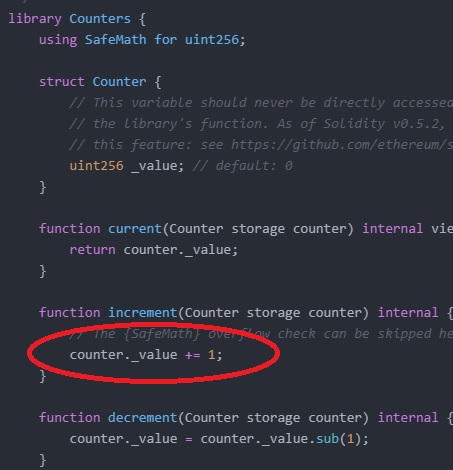Question about the datatype used in the ReentrancyGuard utility.
How come a 2 constant uint256 values and a third uint256 status variable is used instead of just haveing one bool?
I am thinking something like this:
abstract contract ReentrancyGuard {
// Booleans are more expensive than uint256 or any type that takes up a full
// word because each write operation emits an extra SLOAD to first read the
// slot's contents, replace the bits taken up by the boolean, and then write
// back. This is the compiler's defense against contract upgrades and
// pointer aliasing, and it cannot be disabled.
// The values being non-zero value makes deployment a bit more expensive,
// but in exchange the refund on every call to nonReentrant will be lower in
// amount. Since refunds are capped to a percentage of the total
// transaction's gas, it is best to keep them low in cases like this one, to
// increase the likelihood of the full refund coming into effect.
bool private _status;
constructor () internal {
_status = false;
}
/**
* @dev Prevents a contract from calling itself, directly or indirectly.
* Calling a `nonReentrant` function from another `nonReentrant`
* function is not supported. It is possible to prevent this from happening
* by making the `nonReentrant` function external, and make it call a
* `private` function that does the actual work.
*/
modifier nonReentrant() {
// On the first call to nonReentrant, _notEntered will be true
require(!_status, "ReentrancyGuard: reentrant call");
// Any calls to nonReentrant after this point will fail
_status = true;
_;
// By storing the original value once again, a refund is triggered (see
// https://eips.ethereum.org/EIPS/eip-2200)
_status = false;
}
}```




